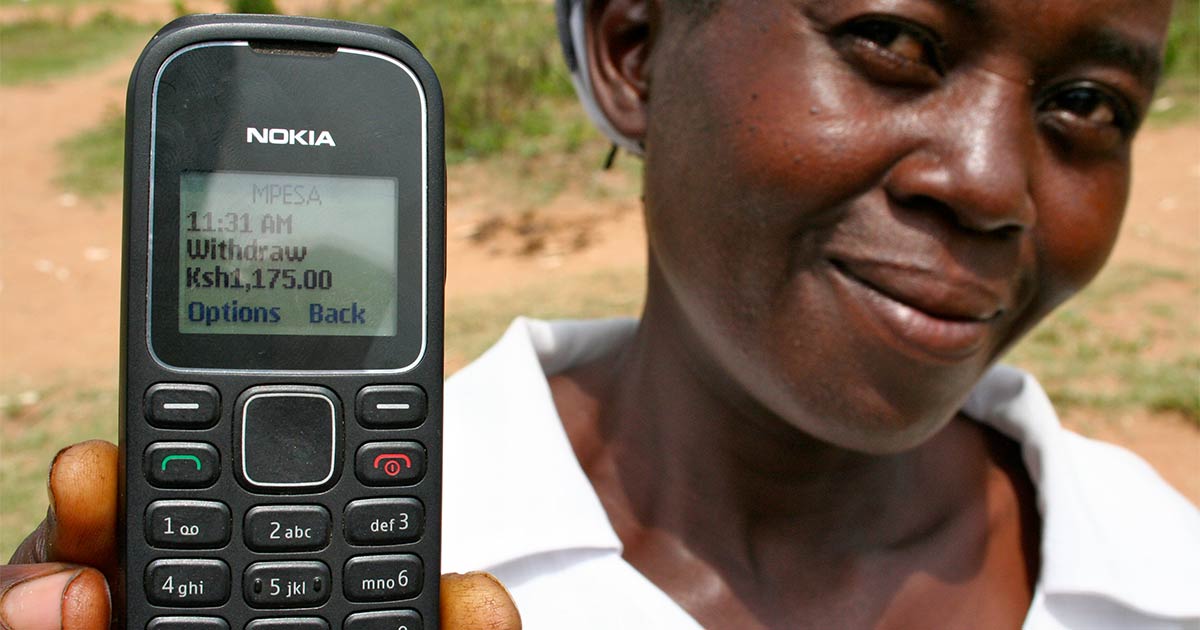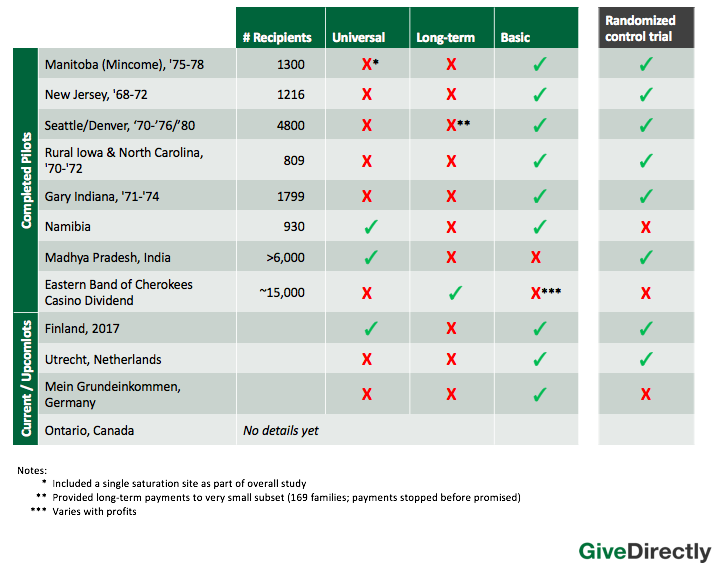The viability of the basic unconditional income idea will be tested in Kenya
6,000 Kenyans will take part in the experiment.

About unconditional income and its impact on human life has been repeatedly written on Geektimes. But it so happened that the idea of introducing an unconditional income has so far been tested in developed countries like Finland or the USA. And what if you take and test the same idea in a relatively poor country - for example, Kenya?
')
Such a project is planning to implement a non-profit organization GiveDirectly, whose headquarters is located in New York. The project team will allocate 6,000 Kenyans (randomly identified) a certain income every month for 10 years. It's not about big amounts, no. People who are chosen will be allocated from $ 255 to $ 400 (per person per year).
The amount is calculated taking into account the average annual income of the Kenyan, as well as the cost of food, rent, health care. The project will allocate a group of people the same amount, regardless of their status (working or unemployed) or wealth.

GiveDirectly started working in 2009. According to company representatives, employees immediately faced misunderstanding and skepticism. "People thought that the recipients would spend the money on alcohol, no one would depend on any income, no one would work," said co-founder of the organization, Michael Fi. But there were also those who appreciated the idea, and the company began to receive financial support, which, in turn, it provided to the participants of its projects.
Similar projects, as mentioned above, are also being implemented in developed countries. For example, the Swiss Federal Government plans to submit to the referendum the question of unconditional income for the citizens of a country. The referendum will be held in June, and the question concerns all citizens without exception. It seems that the problem of unconditional income (DB) is becoming a new trend of our time. This type of income is planned to be introduced, for example, in Finland, here the amount of payments will be 800 euros. Not too much, but this amount covers all citizens living expenses, so if you do not want to work, then you can not do that.
It is planned to conduct an experiment in the Netherlands , in one of the cities, as well as in Finland. Will begin to receive monthly payments and residents of the Canadian province of Ontario, and quite soon.
The idea of unconditional income may seem somewhat strange and unviable. It would seem that if a person pays money due to which he will not need, then no one will work. But this is not the case - in 1970, in the USA, an experiment was conducted when people were paid annual income equal to the average income in the country. And people continued to work. True, they were already looking for a job for themselves, not looking at their wages.
It would be interesting to learn about the results of the project on the introduction of unconditional income in Kenya - so we are waiting for the start of the implementation of this idea.

About unconditional income and its impact on human life has been repeatedly written on Geektimes. But it so happened that the idea of introducing an unconditional income has so far been tested in developed countries like Finland or the USA. And what if you take and test the same idea in a relatively poor country - for example, Kenya?
')
Such a project is planning to implement a non-profit organization GiveDirectly, whose headquarters is located in New York. The project team will allocate 6,000 Kenyans (randomly identified) a certain income every month for 10 years. It's not about big amounts, no. People who are chosen will be allocated from $ 255 to $ 400 (per person per year).
The amount is calculated taking into account the average annual income of the Kenyan, as well as the cost of food, rent, health care. The project will allocate a group of people the same amount, regardless of their status (working or unemployed) or wealth.

GiveDirectly started working in 2009. According to company representatives, employees immediately faced misunderstanding and skepticism. "People thought that the recipients would spend the money on alcohol, no one would depend on any income, no one would work," said co-founder of the organization, Michael Fi. But there were also those who appreciated the idea, and the company began to receive financial support, which, in turn, it provided to the participants of its projects.
Similar projects, as mentioned above, are also being implemented in developed countries. For example, the Swiss Federal Government plans to submit to the referendum the question of unconditional income for the citizens of a country. The referendum will be held in June, and the question concerns all citizens without exception. It seems that the problem of unconditional income (DB) is becoming a new trend of our time. This type of income is planned to be introduced, for example, in Finland, here the amount of payments will be 800 euros. Not too much, but this amount covers all citizens living expenses, so if you do not want to work, then you can not do that.
It is planned to conduct an experiment in the Netherlands , in one of the cities, as well as in Finland. Will begin to receive monthly payments and residents of the Canadian province of Ontario, and quite soon.
The idea of unconditional income may seem somewhat strange and unviable. It would seem that if a person pays money due to which he will not need, then no one will work. But this is not the case - in 1970, in the USA, an experiment was conducted when people were paid annual income equal to the average income in the country. And people continued to work. True, they were already looking for a job for themselves, not looking at their wages.
It would be interesting to learn about the results of the project on the introduction of unconditional income in Kenya - so we are waiting for the start of the implementation of this idea.
Source: https://habr.com/ru/post/393307/
All Articles